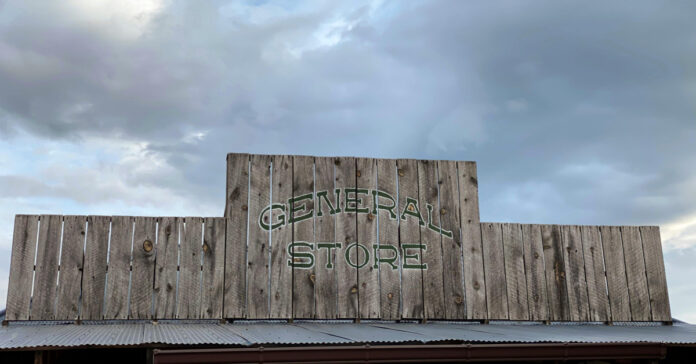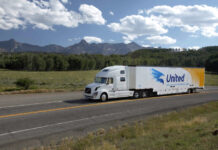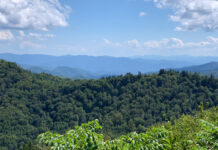When you move to your retreat or make any move from an urban or suburban location to the country, you can be an island apart or you can build a network of people in the area with whom you have some kind of relationship. For security and survival, we decided early on that it was more important to become part of the community than to be outsiders. Because locals often look at outsiders with suspicion (especially those dreaded part-timers who just live here a few months of the year), we wanted to become insiders. We quickly realized will never be true insiders because we don’t have the right last name and didn’t grow up here, but we can become accepted by the insiders. That’s what I would recommend you aim for. Try to become one of “us” instead of one of “them” in the eyes of the locals.
Whether the SHTF in a big way, or you have a small emergency, having a local network you can turn out to could be a life saver.
Social Ties
As a newcomer to the area, we didn’t have relationships with people that date back to grade school. I don’t bump into people my kids played soccer with or who knew my parents. We have to build relationships through other means. The two that have worked well for us are spending money locally and volunteering. My wife has also built a large network of friends, mostly women her age who are not working and like to be social.
Many of her friends are people who grew up in the area, moved out to find jobs, and then returned to retire here, often living in the same house where they grew up. Others came back to care for aging relatives or because they wanted to raise their children here. While they are not as tied into the local network as they would be if they had never left, they still have family and friends in the area and can often pick up where they left off and regain their insider status. Because my wife is friends with insiders, other insiders are more likely to accept her.
Customer Relationships
Because we have very few big box stores and not many franchises or national brands, we do most of our shopping at local mom-and-pop stores. That means we can build a relationship with the people who we deal with. It may take months, but when you come by to buy chicken feed once a month or lumber every time you have a project, they’ll recognize you, and in time, they’ll warm up to you. It also pays to go in the middle of winter, so they know we’re not “part timers,” meaning people who just visit during the warm weather.
We also try to build a relationship with people who own or work in local restaurants. We may not be as regular a customer as some folks, but we want them to recognize us and value our patronage. This is the Appalachians, so there is a good deal of poverty in the area. Without tourists and retirees with some spending money, stores and restaurants would go out of business. That makes our dollars important, and us by extension.
To support locally grown foods, we shop at the farmer’s market and sometimes by deal direct with the grower. Yes, this can be expensive, but these folks need our support and the day may come when we will need their food. Having that relationship could be important.
The barber is another good contact because about 75 percent of the males in the area go through his doors. When I first sat in his chair three years ago, we didn’t talk much. Now we talk guns, fishing, and found we watch several of the same YouTube channels. I’ve also been introduced to people while in the barbershop. That’s the kind of endorsement you need as a newcomer.
Put the City Behind You
We’ve met newcomers who arrived after us and can often tell by their attitudes if they are going to fit in or not. To fit in, you must embrace living in the area. Something as simple as changing your license plate immediately can help.
One key to building relationships in the mountains is to never be in a hurry and always be friendly. People here like to chat., so while I am not the most outgoing of people, I make an effort respond and chat with them. In the off season, they seem to welcome the opportunity to talk to a friendly face and by expressing an interest in what they are saying, you can plant the seeds to building a relationship. I also ask these locals for advice, especially people like the folks who own the hardware store and the man who brings me firewood. (I hired a mason based on his recommendation.)
It also helps that we also express how happy we are to live here, how I have wanted to live in the mountains all my life, and how delighted we were to leave the city. That wins us immediate points. We also make a point of never telling people how to do something, how it is done elsewhere, or what they should do. We are not here to tell people how to live or to point out why they are wrong or could do something better or faster.
Hospitality is also important. When you visit someone, you are obliged to accept at least a drink, even if it is just water. We do the same.
Giving People Honey and Eggs
While I prefer to sell honey and eggs, we give away plenty. Both the barbers get a bottle of honey, even though only one cuts my hair. So does the firewood guy. One neighbor raved about the honey so much, I gave him a larger bottle the following year. Having a good relationship with a neighbor is worth far more to me than a jar of honey.
Even giving someone a zucchini, which can be so prolific there are weeks we would pay someone to take it off our hands, generates profuse thanks. I find these simple gifts create a positive impression and help people remember me in a positive light. It also doesn’t hurt for them to know we have a garden or chickens because they value that.
Similarly, when someone is selling raffle tickets or they have a barbecue to raise money for something, we try to participate.
Volunteering
I volunteer in two areas, one of which is beekeeping, where I mentor new beekeepers as part of a program for our county. In the other, I work with kids. Both give me exposure to people I would otherwise be unlikely to meet, such as in the schools and sometimes social workers.
When I moved here, I had wanted to volunteer to help feed hungry people. I learned that the churches have a lock on this aspect of giving, and if you are not a member of one of the churches involved, there’s not much opportunity. You can donate food to the churches, but most of the volunteer help comes from their parishioners.
I also considered volunteering for the animal rescue shelter. Then I figured, why help animals when there are children that need help? So and I volunteer with kids.
Besides meeting the people I work with, there are often meetings where you meet other volunteers. Many of these volunteers are like us, recent retirees who want to give back to the community now that we are not working 40 or 60 hours a week. That’s a good place to make new acquaintances. My wife met many of her friend circle through volunteering.
Time and Money
When you move to a homestead, you are going to be busy because there are so many projects you need to do. Your wallet will also feel the squeeze because, well, there are so many projects you need to do. Don’t let this stop you from building your network of local relationships. In fact, if people see you as a hard worker, they will likely respect that. You are far better off walking into the hardware store wearing work boots and pants with paint splatters than you are in slacks and a fancy sweater.
In making your homestead improvements, you’ll no doubt use vendors or rent equipment. If they work out well, refer them to other people. I’ve given two other customers to my firewood supplier, referred the guys who buried our water pipes to my wife’s friend, and a fellow beekeeper used the company who brings us truckloads of gravel for our private road and driveway. All the vendors thanked me, and I know that helps cement our relationship.
It’s Working
We’re feeling pretty comfortable around here now, and when we go into town, we usually run into people we know. We could live her 20 years and we still wouldn’t fit in 100 percent with the people who grew up here, but that’s OK. We fit in well enough, and better than many.







